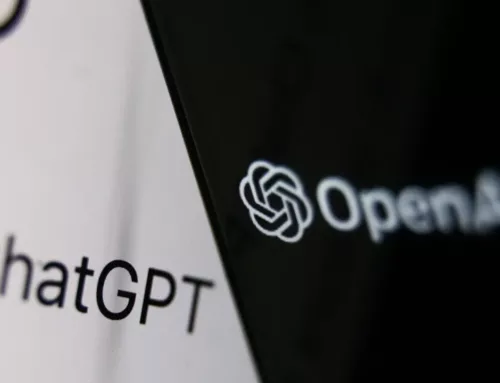Feature image from Quintessence Labs
Gabriella Skoff
Ahead of this weekend’s Australian election, Project Q presents our top four quantum related policy priorities for the 46th Australian Parliament.
The Australian government has been invested in the long-term development of quantum computing since 2000. A 2016 investment boost, to the tune of $70 million AUD over five years from business, academia and the Turnbull government, has helped solidify Australia’s position as a real competitor in what has been dubbed the “quantum race”. By relying heavily on support from the private sector and brain-power from NSW knowledge institutions like the University of Sydney’s Nano Institute and UNSW’s Centre for Computation and Communication Technology (CQC2T), Australia has become recognized as a world leader in silicon-based quantum computing research. But while financial support for quantum computing has been strong, a comprehensive strategy that prioritizes benefits and minimizes harms from these technologies is not at pace.
While Australia is not alone in this position, it is at risk of falling behind. Global quantum competitors are rapidly formalizing proactive policies, in hopes of securing a position on the world stage with this technological development. In the U.S., the government is beginning to think systematically about quantum technology development and enacting policy to match this approach. China, meanwhile, has wasted no time in the coordination and execution of its national quantum policy. The E.U. has also advanced its quantum policy approach and represents the only region to do so with equity and ethics as the backbone of these policies. Whichever party is victorious on Saturday, the 46th Australian Parliament will be presented with the challenge – and the opportunity – to introduce progressive tech policies that will not only boost industry and research, but will protect citizens and pave the way for other countries to follow suit.
For Australia to remain competitive in the quantum race and be prepared for the new reality that will form in the wake of its fulfilment, the 46th Australian Parliament should prioritize the following to create a comprehensive quantum policy:
Security
The coming age of quantum computing will result in a drastic transformation of cyber-security needs. Whether or not Australia wins the quantum race, whoever wins tomorrow’s election will need to address the reality that with the realization of a fully functioning quantum computer will come the ability to hack any system. The Australian Department of Defence is already investing in quantum cryptography, supporting Canberra-based quantum cybersecurity firm Quintessence Labs (QLabs) with AU$528,000 in funding for the further development of quantum key distribution (QKD) technology. This was the largest of eight Defence Department Innovation Hub grants in 2017. It is clear this need has already been recognized by the government in relation to national defence. What is not clear, is how the Australian government will support the keepers of Australians’ most sensitive data—including healthcare services, banks and businesses—to adapt to these new challenges. A lack of quantum cryptography preparedness across even these non-military sectors could result in dire security consequences for Australia.
The Australian Government should consider emulating the forward-looking policy approach stipulated by the European Commission’s Joint Research Centre (JRC). The JRC stresses the importance of equipping both military and non-military service providers with a plan toward implementing future, quantum-encrypted capabilities. The report urges: “Cryptography is indeed important for applications such as preventing interception of classified information, providing governmental services, protecting critical infrastructure, and in the military field. Banks and financial institutions, data centres providers, and players in the health sector can also be potential users. A home-grown industry mastering a technique that potentially guarantees future-proof communications security can hence be seen as an issue of national security.”
Chinese Collaboration
Chinese investment and influence plays an important economic and cultural role in Australia. This is a relationship that most parties have vowed to protect, enshrining it in trade and regional-relations policy. In the quantum race, however, there are concerns that Chinese collaboration on Australian quantum projects could present a national security risk. According to the aforementioned JRC report, this challenge has been identified and is being addressed by the European Commission through their quantum technologies flagship initiative.
The depth and scale of this issue has also been reported by the Australian Strategic Policy Institute (ASPI), in their report, Picking Flowers, Making Honey. The title of the report is derived from a description by the People’s Liberation Army of Chinese-Western collaboration (especially in the Five Eyes countries), as “picking flowers in foreign lands to make honey in China”. The report details how the PLA strategically deploys military researchers to universities in Western countries, obscuring their affiliation, and then brings them back to China so they can use the knowledge and information gleaned from their collaborations to further China’s own national technology development efforts. ASPI reports that this practice essentially aids Chinese military development, especially in the emerging field of quantum computing.
While it remains unclear whether or not the Australian government and domestic research institutions are informed of this practice, no action against this strategic transfer of knowledge has so far been taken. In fact, “Among universities in Five Eyes countries, the University of New South Wales (UNSW) has published the most peer-reviewed literature in collaboration with PLA scientists.”. This information should concern the incoming Australian government, as UNSW is one of the leaders in Australian quantum computing development. If Australia seeks to remain a leader in quantum computing, this is an issue that must be tackled, albeit with a delicate approach that will not impact negatively on the many positive effects of Chinese interests in Australia. According to the ASPI report, many of those who participate in this practice presented with false records, a challenge that could be tackled simply with a higher level of scrutiny over the visa application process for incoming researchers collaborating on high-value projects.
Focus on the Development of Promising Environmental and Renewable Energy Applications
Climate change is a big-ticket item in the upcoming election, and one that may play a decisive role in inducing government change. Regardless, all parties have stated a commitment to investing in renewable energy. Quantum research outside of communication and computing presents promising potential for renewables. However, quantum applications in this space require an increased level of attention and support in order to develop. The Australian government should be investing in a far broader spectrum of emerging quantum applications, such as quantum dots, which could revolutionize the solar energy industry, and quantum tunnelling, which could help to capture and transfer wasted energy. These will be the green energies of tomorrow, presenting Australia with the unique opportunity to be a global leader in this space.
Quantum Business
Already, Australia has grown and attracted a number of powerful tech start-ups and international funding, bolstering its position as a hub for quantum research. There is momentum building to make Sydney the destination for quantum investment and to cement Australia’s place as the Silicon Valley of quantum development in the Southern hemisphere. Further focus on supporting the growth and development of this ecosystem could create a competitive advantage for Australia, boosting business investment and drawing the brightest minds from all over the world to solve quantum’s biggest challenges.
This, in turn, could allow the Australian quantum industry to broaden the scope of its focus, expanding to the areas of research and development mentioned above. Government investment in building the desirability of Australia as a world-class quantum destination would not only help to attract critical private sector investment but could also serve to attract the talent that is now sorely needed.
All contenders on Saturday’s ballot claim varying levels of commitment to prioritizing issues that the coming age of quantum computing will impact, such as cyber-security, defence, innovation and science, business, energy and environment, healthcare and regional relations. Yet no party on the election ballot has explicitly mentioned a dedicated policy for the further development and adoption of quantum technologies. Australia now has the chance to produce an agile national quantum policy that could complement and support some of the most important policy agendas already being pursued. It is clear that quantum technologies will carry a number of social and economic benefits, which will require the keen attention of government representatives in order to realize their potential. As demonstrated by the actions of Australia’s global competitors in quantum development, this can be done in a number of ways. We recommend a human-centric approach that weighs the threats and benefits of quantum development with a critical eye and seeks to not only maximize the benefit of these technologies for all Australians, but also presents an example for other countries to follow suit.







Leave a Reply